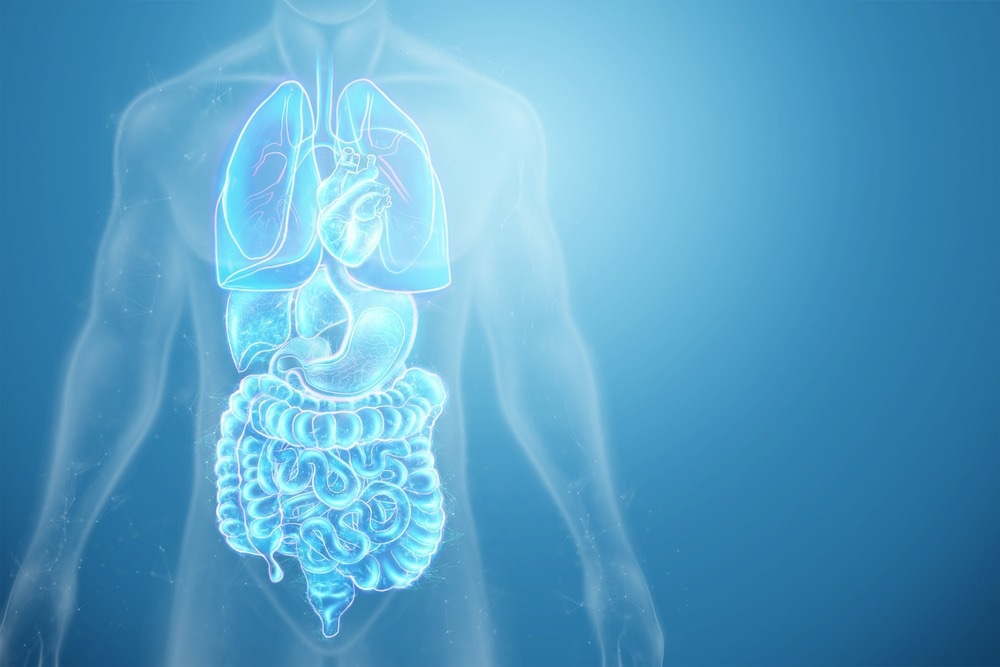
[ad_1]
In a current research printed in Nature, researchers carried out a proteomic evaluation to determine serologic indicators of organ ageing and illness.

Background
Animal research present that ageing differs between people and organs; nevertheless, its affect on age-related issues in people is unsure. Getting older will increase the danger of persistent ailments and has the potential to remodel affected person care, preventative medication, and medicine improvement. Correct ageing measures are essential to changing these findings into transformational therapies.
Present methods make use of scientific chemical indicators with poor organ specificity, whereas mind ageing assessments use magnetic resonance imaging (MRI)-based mind quantity and practical connectivity research.
Concerning the research
Within the current research, researchers developed an easy and interpretable method for finding out organ ageing and predicting ailments and ageing penalties utilizing plasma proteomics knowledge.
The staff developed a novel method for assessing and monitoring human ageing by quantifying organ-specific protein molecules in plasma. They measured organ-specific ageing variations in people utilizing ranges of human blood plasma proteins from particular organs. The staff utilized machine studying algorithms to look at ageing in 11 predominant organs and assessed organ age in 5 cohorts with 5,676 people.
The researchers analyzed 4,979 proteins and charted the hypothesized organ-specific proteins in plasma, which they then utilized to coach organ ageing fashions. Utilizing the Human Protein Atlas standards, genes had been categorised as ‘organ enriched’ in case of ≥4.0-fold increased expression in an organ compared to different organs. High quality management assessments had been carried out to exclude proteins with excessive variation coefficients or weak correlations between the SomaScan take a look at variations used for the cohorts.
Getting older fashions produce an ‘age hole’ for all people, which signifies particular person organic age in comparison with similarly-aged friends in line with their molecular profiles. The researchers educated lowest absolute shrinkage and choice operator (LASSO) fashions for predominant organs (n=11) utilizing organ-enriched protein molecular inputs. The research was restricted to arteries, fats, coronary heart, mind, immune tissues, intestines, kidneys, liver, lungs, muscle tissue, and pancreas on account of their established contributions to ageing issues and accessibility to age-related phenotypic info within the cohorts.
The researchers investigated the connection between organ age and organic ageing, trying on the relationship between organ e-ageotypes and 9 age-related sickness states. Additionally they decided the connection between organ age variations and all-cause mortality. The function significance for organic ageing (FIBA) methodology was used to grasp the connection and acquire per-protein significance scores for chronological and organic age. The researchers used FIBA to analyze the time sequence of cognitive decline and the organic mechanisms concerned in all ageing fashions utilizing the Knight AD Analysis Heart group.
Outcomes
The findings indicated that 20% of the inhabitants has considerably accelerated ageing in a single organ, and 1.7% have multi-organ ageing. Accelerated organ ageing will increase mortality danger by 20% to 50%, and organ-specific sicknesses are related to faster ageing of specific organs. Accelerated coronary heart ageing will increase the danger of coronary heart failure by 250%, and accelerated mind and vascular ageing predicts Alzheimer’s illness (AD) improvement independently and as strongly as plasma pTau-181, the present finest blood-based biomarker for AD.
With 893 (18%) proteins fulfilling the “organ-enriched” criterion, with the very best quantity from the mind, plasma proteins probably mimic organ ageing. Following high quality management, 4,778 proteins (856 organs enriched, 18%) had been used for downstream evaluation. After a number of take a look at changes, all 11 organ-specific ageing fashions precisely predicted age for all cohorts. The proteins chosen for the research had been considerably enriched for actions associated to particular organs.
The researchers discovered that people with related age variations had completely different organ ageing patterns, leading to low-moderate associations between organ-specific age variations on the inhabitants degree. Whereas organ-specific ageing was related, aside from the organismal and traditional age gaps, the majority of the variance in an organ-related age hole was unexplained by others. Moreover, the staff discovered that sure people skilled extreme ageing in a number of organs in comparison with the general inhabitants.
Organ e-ageotypes are related to numerous illness states, and organ age can predict well being and sickness. Kidney ageotypes are linked to metabolic issues; coronary heart ageotypes to cardiac ailments; muscle ageotypes to gait impairment; mind ageotypes to cerebrovascular illness; and organismal ageotypes to AD.
The researchers seen a constant sample of decreases in AD mind tissue and a rise in blood with age and AD, implying that the rise in synapse and neurite growth-related protein ranges within the blood may very well be on account of a loss or alteration in protein processing and subsequent shedding of those elements within the mind. CognitionOrganismal and CognitionArtery proteins altered earlier and extra swiftly with age than CognitionBrain and CognitionPancreas proteins.
Conclusion
Total, the research findings highlighted a framework for modeling organ well being and organic ageing utilizing plasma proteomics, which may predict mortality, illness danger, and tissue ageing heterogeneity. This minimally invasive method will help perceive the consequences of well being interventions on the organ degree. The research supplies a complete useful resource of organ ageing info for practically 6,000 people throughout the grownup lifespan and numerous age-associated illness states.
[ad_2]